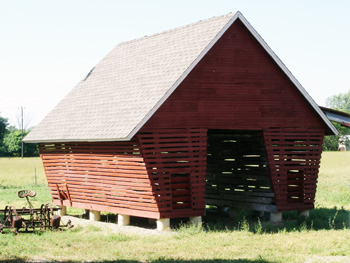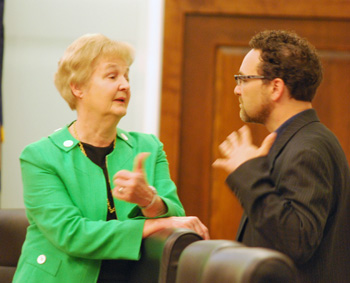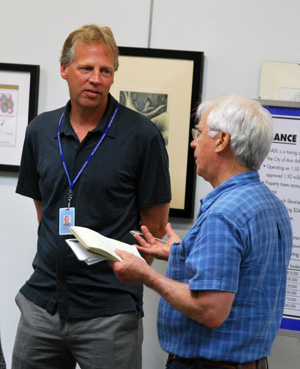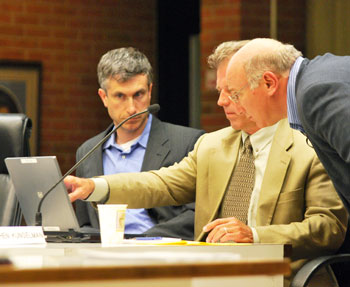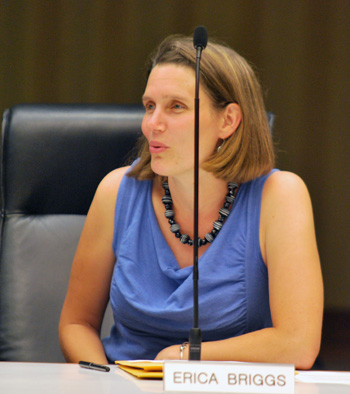Greenbelt Group Updated on County Efforts
Ann Arbor greenbelt advisory commission meeting (June 7, 2012): Collaboration was a theme that tied together several items at the most recent GAC meeting, starting with a review of farmland preservation efforts by Washtenaw County.
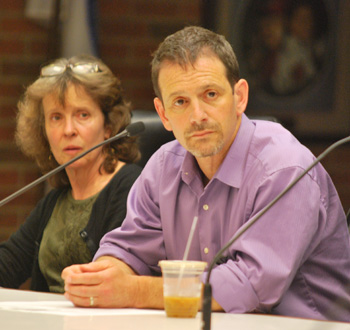
Greenbelt advisory commissioners Liz Rother and Mike Garfield. The June 7 meeting was the last one for Garfield, whose term is ending this month. He is director of the Ecology Center, a nonprofit based in Ann Arbor. (Photos by the writer.)
The county parks and recreation commission is moving toward a decision on the first farm properties to include in its land preservation program. It has about $1.6 million to work with, using a portion of proceeds from the countywide natural area preservation millage, which was renewed by voters in November of 2010. That 10-year, 0.25-mill tax also funds the county’s acquisition of natural areas and land preserves.
Susan Lackey, executive director of the Legacy Land Conservancy, briefed the greenbelt commissioners on the first round of deals. The Ann Arbor-based nonprofit is under contract to help manage the county program. Out of 57 applications, seven properties are moving forward for appraisals and final consideration, potentially covering 1,100 acres.
Though the county’s efforts at protecting farmland are relatively new, the greenbelt program has focused on farmland preservation since Ann Arbor voters approved a 30-year 0.5 mill tax in 2003. Lackey described the county’s efforts as complementary to the greenbelt program, noting that there’s more work to be done than any single entity can do.
Later in the meeting – during an discussion about efforts to update the greenbelt program’s strategic plan – Mike Garfield suggested that it might be time to shift more of the greenbelt’s efforts to natural areas or recreational projects like the Border-to-Border trail or RiverUp, and scale back the amount of farmland preservation.
One difficulty in this shift relates to matching funds. Ginny Trocchio, who serves as support staff for the greenbelt program, told commissioners that while the greenbelt has been very successful in securing grants through the federal Farm and Ranch Lands Preservation Program (FRPP), there are far fewer options for non-farmland properties. Partnerships with other local entities, like the county parks and recreation department, is one of the main ways that non-farmland land preservation dollars can be leveraged.
Another general challenge for all types of land preservation was cited by Lackey: A mild resurgence of development pressure as the economy improves, which is starting to drive up land values. She urged all groups to get as much preservation work done as possible in the next three to five years.
This month’s meeting was the last one for Garfield, who was instrumental in helping pass the city’s open space and parkland preservation millage, which funds the greenbelt program. He is term-limited. His potential replacement, Archer Christian, was introduced at the meeting. She is development director at the Ann Arbor-based Ecology Center, where Garfield serves as director.
At the end of the meeting, commissioners held a closed session to discuss potential land acquisitions. When they emerged, they voted unanimously to recommend action by city council on the purchase of development rights for four parcels within the greenbelt boundaries, if FRPP grants can be secured. [Full Story]





